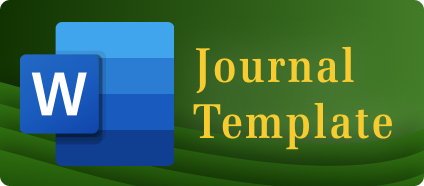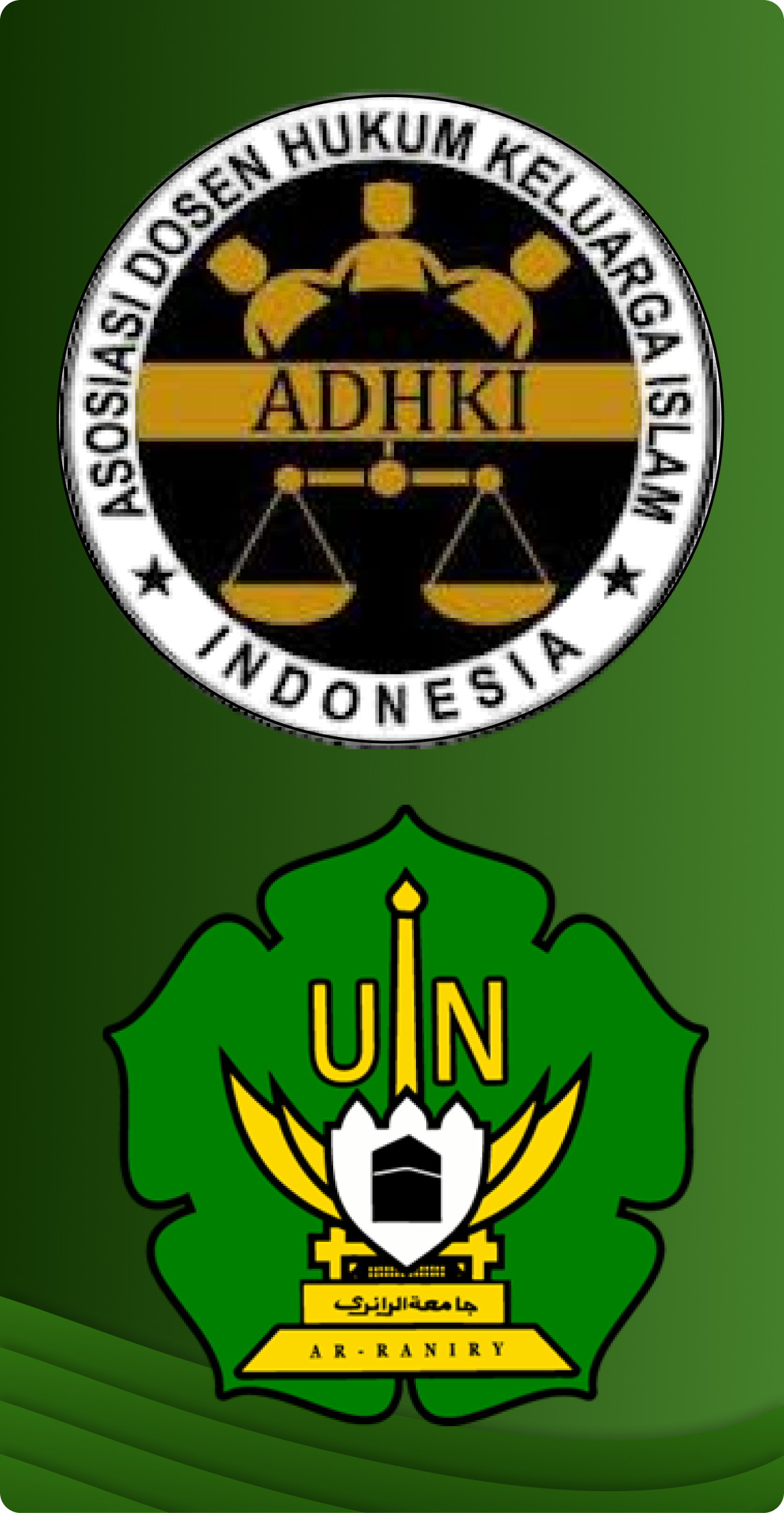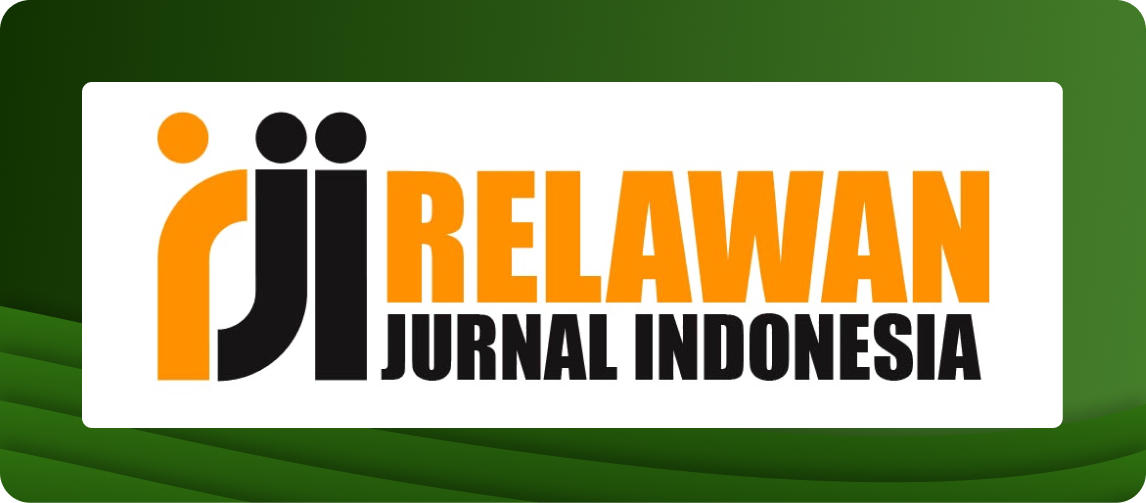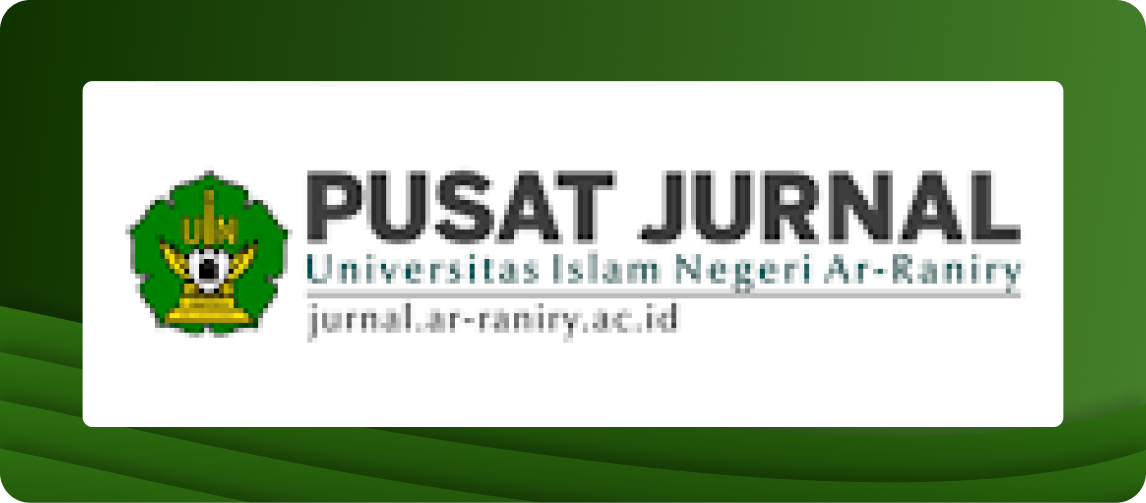The Politics of Waqf Practice in Pesantren Kyai Families in Bangkalan Madura, Indonesia
DOI:
https://doi.org/10.22373/ujhk.v7i1.22186Keywords:
Kyai, Madura, politic, waqf, pesantrenAbstract
The Waqf Law mandates that waqf management is expected to sustain and improve the ummah's economy, but many waqf practices are not carried out according to procedures, such as changing Nazirs without coordinating with the Indonesian Waqf Board, which is done by many Kyai in Bangkalan Regency. Waqf Core Principles is an initiative effort that aims to provide a description of the position and role of waqf management and supervision systems in economic development programs and as a methodology on the core principles of management and supervision. This research uses a qualitative approach. Data were obtained from waqf managers in Islamic boarding schools in Bangkalan Regency, targeting effective waqf management in Waqf Core Principals, using componential analysis with Atlas.ti. The research findings show that the practice of waqf in Islamic boarding schools in Bangkalan Regency is more of a formal practice as a requirement for obtaining assistance and the like, including the waqf management structure revolving around close family circles, while in terms of supervision, the government is passive in waiting if there are problems and adjusting the budget in socialization and supervision activities. Building awareness of the utilization of waqf assets can be done through structured counseling through existing instructors in each sub-district by building synergies with pesantren, as educational, religious and social institutions that are trusted to be at the forefront and pilot of waqf development.
References
Journal and Books
Abidin, Zainal, “The Jihad of Economic: the Spirit of Islamic Economic Movement By Kyai in Madura.” Share: Jurnal Ekonomi dan Keuangan Islam 4, no. 2 (2015): 166–86. https://doi.org/10.22373/share.v4i2.1029.
Airlangga, Departemen Ekonomi Syariah Fakultas Ekonomi dan Bisnis - Universitas. Wakaf: Pengaturan dan Tata Kelola yang Efektif Seri Ekonomi dan Keuangan Syariah. 1 ed. Indonesia: Indonesia, Departemen Ekonomi dan Keuangan Syariah - Bank, 2016.
Al-Haddad, Ahmad bin Abdul Azis. Min Fiqh al-Waqf. Dubai: Dairah As-Su’un al-Islamiyah wa Al-’Amal Khoiri, 2009.
Alim, Zainal. “Pergeseran Orientasi Kelembagaan Pesantren Di Madura Dalam Perspektif Kiai Bangkalan.” Jurnal Pendidikan Agama Islam (Journal of Islamic Education Studies) 4, no. 2 (2016): 249. https://doi.org/10.15642/pai.2016.4.2.249-270.
Az-Zuhaili, Wahbah. Al-Fiqh al-Islam Wa Adillatuhu. Beirut: Dar al-Fikr, 1985.
Bakr, Taqiyuddin Abi. Kifayah Al-Akhyaar. Mesir: Dar al-Kitab al-’Arabiy, n.d.
Bariyah, N. Oneng Nurul. “Dinamika Aspek Hukum Zakat dan Wakaf di Indonesia.” Ahkam: Jurnal Ilmu Syariah 16, No. 2 (2016), 197-212, 10.15408/ajis.v16i2.4450.
Basyit, Abdul. “Pembaharuan Model Pesantren : Respon terhadap Modernitas.” Kordinat XVI, no. 2 (2017): 293–324. http://journal.uinjkt.ac.id/index.php/kordinat/article/view/6444.
Choiri, Muttaqin, dan Ahmad Makhtum. “Traditionalism Nazhir Kyai On Waqf Asset Development In Bangkalan Madura.” Ziswaf: Jurnal Zakat Dan Wakaf 8, no. 1 (2021): 72. https://doi.org/10.21043/ziswaf.v8i1.8385.
“Data Tanah Wakaf,” n.d. http://siwak.kemenag.go.id/index.php.
Dhofier, Zamakhsyari. Tradisi Pesantren, Studi tentang Pandangan Hidup Kyai. Jakarta: LP3SS, 1993.
Direktorat Pemberdayaan Wakaf. Fiqih Wakaf. Jakarta: Direktorat Pemberdayaan Wakaf Kementerian Agama, 2006.
Faozan, Ahmad. “Pondok Pesantren dan Kemandirian Ekonomi.” Ibda’ 4, no. 1 (2006).
Farchan, Hamdan, dan Syarifuddin. Titik Tengkar Pesantren; Resolusi Konflik Masyarakat Pesantren. Yogyakarta: Pilar Media, 2005.
Fatchan, Ach, dan Basrowi. Pembelotan Kaum Pesantren dan Petani Jawa. Jakarta: Darma Bakti, 2004.
Fathurrohman, Tata, Ayu Sobarna, dan A Mujahid Rasyid. “Analisis Deskriptif Tentang Kinerja Nadzir Wakaf.” Mimbar 30, no. 2 (2014): 233–42. https://doi.org/https://doi.org/10.29313/mimbar.v30i2.801.
Fauzan, Khalid bin Harun bin. Atsar al-Waqf. Riyadh: Wizarah Su’un al-Islamiyah wa Al-Awqaf Ad-Da’wah wa Al-Irsyad, 2005.
Harrieti, N., and Mulyati, E., “Perspektif Hukum: Peranan Perbankan Syariah Dalam Pengelolaan Wakaf Uang di Indonesia,” Al-Risalah: Forum Kajian Hukum Dan Sosial Kemasyarakatan 17¸No. (2018), 137-146, https://doi.org/10.30631/alrisalah.v17i02.60
Huda, Miftahul. “Wakaf dan Kemandirian Pesantren dari Tebuireng Hingga Gontor.” Islamica 7, no. 1 (2012): 211–31. https://doi.org/https://doi.org/10.15642/islamica.2012.7.1.211-231.
Huda, Miftahul., Lia Noviana, Lukman Santoso, ” Development The Governance of Corporate-Based Waqf In South East Asia,” De jure: Jurnal Hukum dan Syar'iah 12, No. 2, (2020), 120-139, 10.18860/j-fsh.v12i2.3908.
Kasdi, Abdurrahman. “Peran Nadzir Dalam Pengembangan Wakaf.” Jurnal Zakat dan Wakaf 1, no. 2 (2014): 213–26. https://doi.org/http://dx.doi.org/10.21043/ziswaf.v1i2.
Kementerian Agama, Paradigma Baru Wakaf. Jakarta: Kementerian Agama, 2013.
Kementerian Agama, Wakaf of Beginner. Jakarta: Kementerian Agama, 2013. https://doi.org/10.1017/CBO9781107415324.004.
Khosyi’ah, Siah, Wakaf dan Hibah. Bandung: Pustaka Setia, 2010.
Marza, Awwaluddin., et.al., “The Role of The Indonesian Waqf Agency in The Implementation of Nazir Supervision of Land Waqf (Study At Badan Wakaf Indonesia of Lhokseumawe City),” Syariah: Jurnal Hukum dan Pemikiran 22, No. 2 (2022), 183-193, https://doi.org/10.18592/sjhp.v22i2.5841.
Masdar, “Penerapan Hukum Wakaf Uang di Indonesia Perspektif Legal System Theory,” Al-Manahij: Jurnal Kajian Hukum Islam 11, No. 1 (2017), 79-92, https://doi.org/10.24090/mnh.v11i1.1269.
Mas’ud, Abdurrahman. Intelektual Pesantren : Perhelatan Agama dan Tradisi. Yogyakarta: LKiS, 2004.
Muntaqo, Firman. “Problematika dan Prospek Wakaf Produktif di Indonesia.” Al-Ahkam 25, No. 1 (2015). DOI: 10.21580/ahkam.2015.1.25.195.
Obaidullah, Mohammed, Hylmun Izhar, dan Dadang Muljawan. Core Principles for Effective Waqf Operation and Supervision. Jakarta: Badan Wakaf Indonesia, 2018.
Putri, Liza Diniarizky, et.al., ” Developing ecological piety in pesantren: the Kyai’s cognition and the practice of living fiqh al-bī’ah in Banten.” Ijtihad: Jurnal Wacana Hukum Islam dan Kemanusiaan 23, No. 2 (2023), 235-259, https://doi.org/10.18326/ijtihad.v23i2.235-259.
Qahaf, Munzir. Al-Waqf Al-Islaami. Damaskus: Dar al-Fikr, 2000.
Qal’aji, Muhammad Rawas. Mu’jam al-Lughah al-Fuqaha’. Beirut: Dar al-Nafa’is, 1985.
Rasiam, et.al., “Integration of New Media and Prophetic Communication Enhanced for Zakah, Infāq, Ṣadaqah, and Waqf Fundraising: A Case Study of Baitulmaal Munzalan Indonesia.” Journal of Islamic Law, 28-46, https://doi.org/10.24260/jil.v4i1.1167.
Saad, Ram Al Jaffri, et.al., “Islamic Accountability Framework in the zakat funds management.” In International Conference on Accounting Studies, 508–15. Kuala Lumpur: Elsevier, 2014.
Sabri, Fahruddin Ali. “WAKAF UANG (Sebuah Alternatif dalam Upaya Menyejahterakan Masyarakat).” Al-Ihkam: Jurnal Hukum dan Pranata Sosial 8, No. 1 (2013). 40-54, https://doi.org/10.19105/al-lhkam.v8i1.339.
Samad, Fauzan, et.al., “Strategy of Community Economy Empowerment Through the Management of Waqf Assets at The Baitussalihin Mosque in Ulee Kareng, Banda Aceh City,” Jurnal Sosioologi Dialektika Sosial 10, No. 1 (2024). DOI: https://doi.org/10.29103/jsds.v10i1.15440.
Sulistiani, Siska Lis, “The Legal Position of Waqf for Non-Muslims in Efforts to Increase Waqf Assets in Indonesia.” Samarah: Jurnal Hukum Keluarga dan Hukum Islam 5, No. 1 (2021). http://dx.doi.org/10.22373/sjhk.v5i1.9161.
Syakur, Ahmad. “Optimalisasi Peran Pesantren Dalam Pengembangan Ekonomi Syari’Ah.” Iqtishoduna 5, no. 3 (2009). https://doi.org/10.18860/iq.v4i3.305.
Syaikhu Syaikhu, et.al., “The Empowerment of Infaq and Waqf Evaluation in light of Maqasid al-Sharia Perspective in Mosques in Palangka Raya, Indonesia,” Samarah: Jurnal Hukum Keluarga dan Hukum Islam 5, No. 2 (2021). DOI: http://dx.doi.org/10.22373/sjhk.v5i2.8997.
Syahbandir, Mahdi, et.al., Infaq and Shadaqah as A Source of Original Regional Income in Aceh (Case Study in Bireuen Regency, Pidie and Lhokseumawe City),” Journal of Governance and Social Policy 4, No. 2 (2023). DOI: https://doi.org/10.24815/gaspol.v4i2.35953.
Wira, Ahmad., et.al., “Legal Study of Dzurri Waqf and its Implementation towards Strengthening High Heritage Assets in Minangkabau, West Sumatra, Indonesia”, Juris: Jurnal Ilmiah Syariah 22, No. 2 (2023). 329341, http://dx.doi.org/10.31958/juris.v22i2.
Wiyata, A. Latief. Carok : Konflik Kekerasan dan Harga Diri Orang Madura. Yogyakarta: LKiS, 2002.
Interviews
Interview with Fathorrozi, Head of Modung KUA, September 22, 2022.
Interview with Ghurrotul Muhajjalah, Daughter of Nazhir Wakaf Pondok Pesantren Al-Asror, September 30, 2022.
Interview with H. Faisol Ahmad, Darul Falah Al-Haqiqiyah Foundation, Madura, September 20, 2022.
Interview with KH. Muhammad Biyuzar, Bangkalan, Madura, September 2022.
Interview with Muhammad Sus, Head of the Arosbaya KUA, September 30, 2022.
Interview, Chairman of POKJALUH Bangkalan, September 23, 2022.
Interview, Key informant Chairman of POKJALUH Bangkalan, September 23, 2022.
Interview, Key Informant, Madura, September 20, 2022.
Interview, Key Informant, Madura, September 20, 2022.
Interview, Key Informant, Madura, September 23, 2022.
Interview, Key Informant, Madura, September 28, 2022.
Interview, Key Informant, Madura, September 30, 2022.
Interview, KUA Modung, Madura, September 22, 2022.
Interview, Mustangin, the Head of the KUA of Galis Subdistrict, September 28, 2022.
Downloads
Published
Issue
Section
License
Authors who publish in El-Usrah: Jurnal Hukum Keluarga agree to the following terms:
Authors retain copyright and grant the journal right of first publication with the work simultaneously licensed Attribution-ShareAlike 4.0 International (CC BY-SA 4.0) that allows others to share the work with an acknowledgment of the work's authorship and initial publication in this journal.
Authors are able to enter into separate, additional contractual arrangements for the non-exclusive distribution of the journal's published version of the work (e.g., post it to an institutional repository or publish it in a book), with an acknowledgment of its initial publication in this journal.
Authors are permitted and encouraged to post their work online (e.g., in institutional repositories or on their website) prior to and during the submission process, as it can lead to productive exchanges, as well as earlier and greater citation of published work. (See The Effect of Open Acces)

















